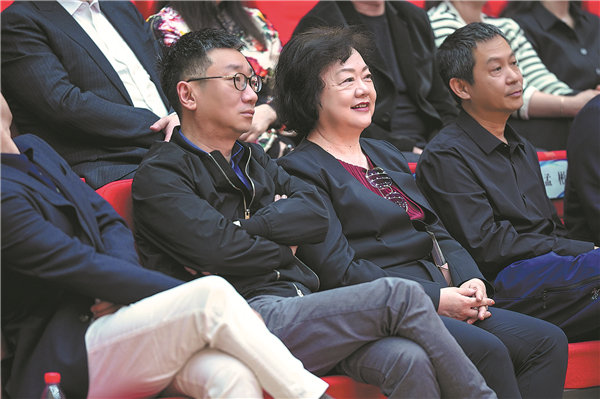

In 1937, Chinese playwright Cao Yu (1910-96), whose real name was Wan Jiabao, released his third play, The Wilderness. Unlike his first two plays — Thunderstorm in 1933 and Sunrise in 1935, which tell stories about urban life — The Wilderness presents a story of love and revenge that unfolds in the countryside.
Reflecting the influence of American playwright Eugene O'Neill on the writer, it revolves around a man named Qiu Hu, who escapes from prison and returns to his home village to kill a local tyrant, Jiao Yanwang, who ruined his family. There, he reunites with his ex-lover, Jinzi, and his former friend, Daxing — son of Jiao.
The Wilderness has been adapted into such performance genres as movies and plays.
In 1987, Cao Yu's daughter, dramatist Wan Fang, turned it into a Chinese opera by working with composer Jin Xiang (1935-2015), who was a professor of the China Conservatory of Music. On July 25 of that year, the Chinese opera premiered in Beijing, performed by the China National Opera and Dance Drama Theater. In January 1992, it was staged at the Eisenhower Theater of the Kennedy Center in Washington, DC, making it one of the first Chinese operas staged in the West.
Marking the 60th anniversary of the China Conservatory of Music, the school announced the restaging of the Chinese opera with Li Xincao, president of the school, serving as the artistic director and Chen Wei, a professor at the school's opera department, as the director.
On July 14 and 15, The Wilderness will be staged at the China National Opera House in Beijing.